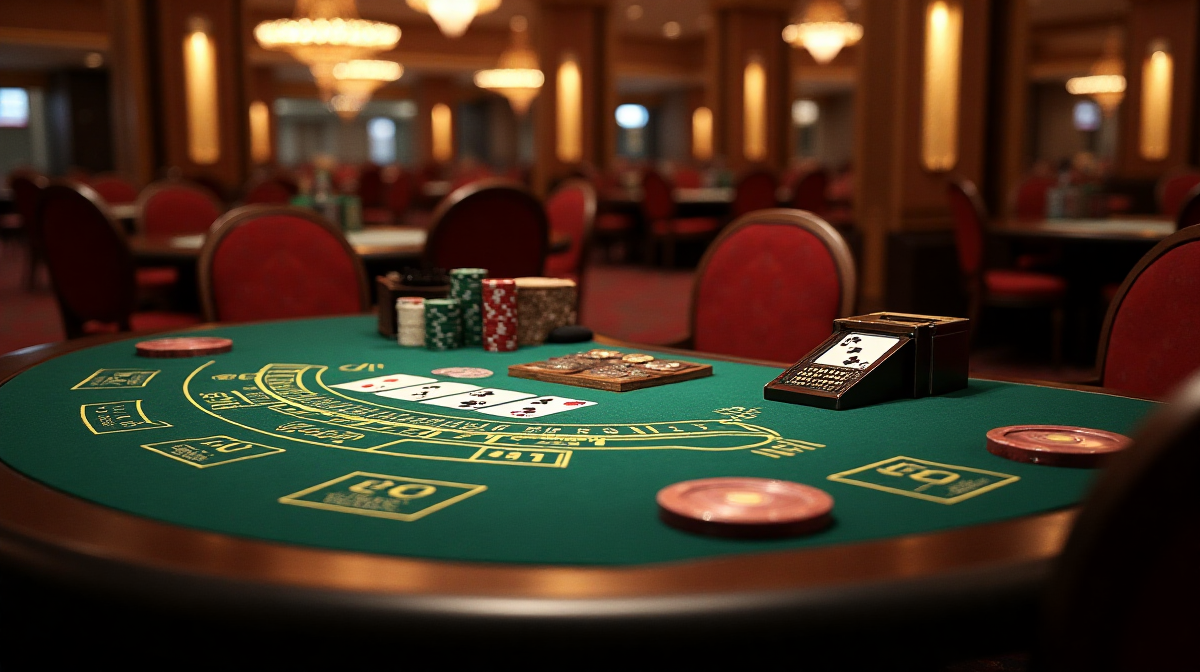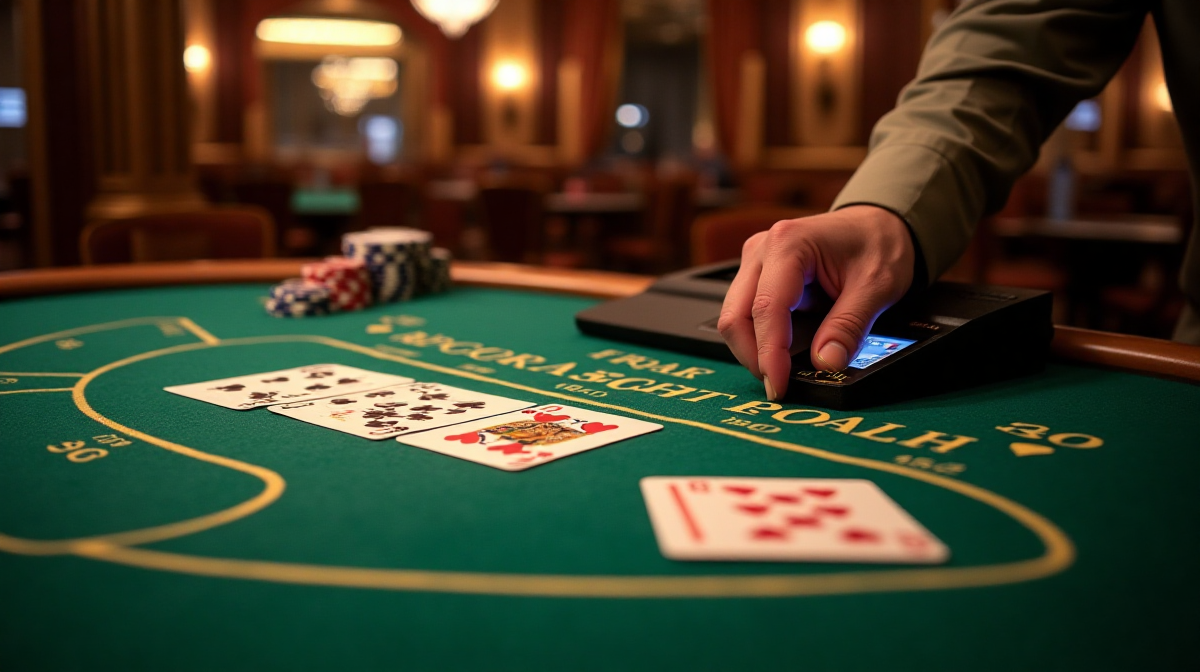5 Secrets to Winning at Blackjack
The Allure of Blackjack: Why It Captivates Players
Blackjack, a casino staple, holds a unique appeal for players. Unlike many games driven purely by chance, blackjack offers a compelling blend of luck and skill. The strategic element, where informed decisions can demonstrably influence the outcome, is a major draw. Whether you're seeking the thrill of a fast-paced game or the intellectual challenge of optimizing your play, blackjack consistently delivers. Many players are now exploring platforms like betfuse to experience the game online, seeking convenience and a wider range of options.
Debunking Blackjack Myths: Separating Fact from Fiction
Numerous myths surround blackjack, often perpetuated by misinformation or wishful thinking. One common misconception is that casinos can easily detect and ban card counters, while in reality, detection is far more complex. Another is the belief that hot or cold streaks influence future outcomes – each hand is independent. Understanding these fallacies is crucial to approaching the game with a rational mindset.
Setting Realistic Expectations: Understanding the House Edge
While skilled play can significantly reduce the house edge, it’s vital to acknowledge its existence. Blackjack isn’t a game you can consistently beat in the long run without employing advanced techniques like card counting. The house edge represents the statistical advantage the casino holds, and managing expectations accordingly is key to responsible gambling.
Mastering Basic Strategy
What is Basic Strategy? A Comprehensive Explanation
Basic strategy is the mathematically optimal way to play every hand of blackjack, based on your cards and the dealer’s upcard. It's not a guarantee of winning, but it minimizes the house edge to its lowest possible level. It’s built on probabilities and statistical analysis, providing a framework for making the most advantageous decisions in every scenario.
The Basic Strategy Chart: Understanding its Components
The Basic Strategy Chart is a visual guide outlining the optimal action (hit, stand, double down, split) for every possible hand combination. It’s divided into sections based on your hand’s total (hard totals – hands without an Ace counted as 11, soft totals – hands with an Ace counted as 11, and pairs) and the dealer’s upcard. Mastering this chart is the foundation of successful blackjack play.
Practicing Basic Strategy: Tools & Resources for Improvement
Numerous resources are available to help you learn and practice basic strategy. Online trainers allow you to simulate hands and receive feedback on your decisions. Many casinos also offer practice tables. The betfuse app download provides easy access to online blackjack tables where you can implement your learning.
Common Basic Strategy Mistakes to Avoid
One common blackjack mistake is deviating from the chart based on gut feeling. Another is misinterpreting the chart, particularly with soft totals. Consistent adherence to basic strategy is paramount, even when it feels counterintuitive.
Effective Bankroll Management
The Importance of a Bankroll: Protecting Your Funds
A bankroll is the amount of money you allocate specifically for playing blackjack. It’s crucial to treat it as capital, not as disposable income. Proper bankroll management protects you from significant losses and allows you to weather inevitable downswings.
Setting Betting Limits: Determining Your Minimum & Maximum Bets
Establish clear betting limits before you begin playing. Your minimum bet should be small enough to allow you to ride out losing streaks, while your maximum bet should be a percentage of your bankroll that you’re comfortable losing. A common blackjack betting strategy involves betting a fixed percentage of your bankroll on each hand.
Unit Sizing: Calculating Appropriate Bet Sizes
Unit sizing refers to determining the appropriate bet amount for each hand, typically as a percentage of your bankroll. A conservative approach is to bet 1-2% of your bankroll per hand. This helps to minimize risk and extend your playing time.
Avoiding Chase Losses: Discipline and Emotional Control
Chasing losses – increasing your bets in an attempt to recoup previous losses – is a dangerous trap. It often leads to larger losses and poor decision-making. Discipline and emotional control are essential for successful bankroll management.

Understanding Card Counting
What is Card Counting? The Core Principle Explained
Card counting is a technique used to track the ratio of high cards to low cards remaining in the deck. The premise is that a deck rich in high cards favors the player, while a deck rich in low cards favors the house.
The Hi-Lo System: A Popular and Relatively Simple Card Counting Method
The Card Counting Hi-Lo system assigns a value of +1 to cards 2-6, 0 to cards 7-9, and -1 to cards 10-Ace. You keep a running count as cards are dealt, adjusting your bets based on the count.
True Count vs. Running Count: Understanding the Nuances
The running count is the cumulative sum of card values. The true count is the running count divided by the estimated number of decks remaining. The true count provides a more accurate assessment of the deck’s composition.
Legal Considerations of Card Counting & Casino Countermeasures
Is card counting illegal? No, card counting itself is not illegal, but casinos have the right to refuse service to anyone they suspect of counting cards. Casinos employ various countermeasures, such as shuffling more frequently or using multiple decks.
Limitations of Card Counting: Variance & Skill Requirements
Card counting is not a foolproof system. It requires significant skill, concentration, and practice. Variance – the natural fluctuations in results – can still lead to losing sessions, even with accurate counting.
Recognizing Table Rules & Variations
The Impact of Rules: Dealer Hits/Stands on Soft 17, Double After Split, Surrender
Different casinos offer varying rule sets that significantly impact the house edge. For example, whether the dealer hits or stands on a soft 17 (an Ace and a 6) makes a difference. Similarly, the availability of options like doubling after splitting and surrender can affect your odds.
Different Blackjack Games: Spanish 21, Blackjack Switch, etc.
Different Blackjack Games exist beyond the standard version, each with its own unique rules and strategies. Spanish 21, for example, removes the 10s from the deck, while Blackjack Switch allows you to switch the top cards of your two hands.
Finding Favorable Rules: Optimizing Your Odds
Seek out tables with favorable rules, such as those where the dealer stands on soft 17 and doubling after split is allowed.
Commonly Overlooked Rule Differences
Pay attention to seemingly minor rule differences, such as whether you can re-split Aces. These can have a subtle but measurable impact on your expected return.

Utilizing Optimal Playing Techniques
Insurance Bets: When to Take Them
Generally, avoid taking insurance bets. While it might seem tempting to protect yourself from a dealer blackjack, the odds are unfavorable in the long run. When to take insurance in blackjack is almost never, unless you're an exceptionally skilled card counter with a significant advantage.
Splitting Pairs: A Detailed Guide to When and How
Splitting Aces Blackjack is almost always the correct play. Splitting other pairs depends on the dealer’s upcard. Consult the basic strategy chart for specific recommendations.
Doubling Down: Strategic Opportunities for Maximizing Wins
When to double down in blackjack is when you have a strong starting hand (e.g., 11 against a dealer’s low card) and a favorable opportunity to increase your bet.
Surrender Option: Knowing when to cut your losses
If you have a weak hand and the dealer has a strong upcard, utilizing the surrender option can minimize your losses.
Recap of the 5 Secrets
We've covered mastering basic strategy, effective bankroll management, understanding card counting, recognizing table rules, and utilizing optimal playing techniques. These five secrets, when combined, provide a comprehensive framework for improving your blackjack game. Platforms like betfuse make practicing these skills more accessible than ever.
The Importance of Practice and Continuous Learning
Blackjack is a game that rewards continuous learning and practice. The more you play and analyze your results, the better you’ll become.
Responsible Gambling: Playing Smart and Staying Within Your Limits
Responsible Gambling is paramount. Set a budget, stick to it, and never gamble more than you can afford to lose. If you feel like your gambling is becoming a problem, seek help.

